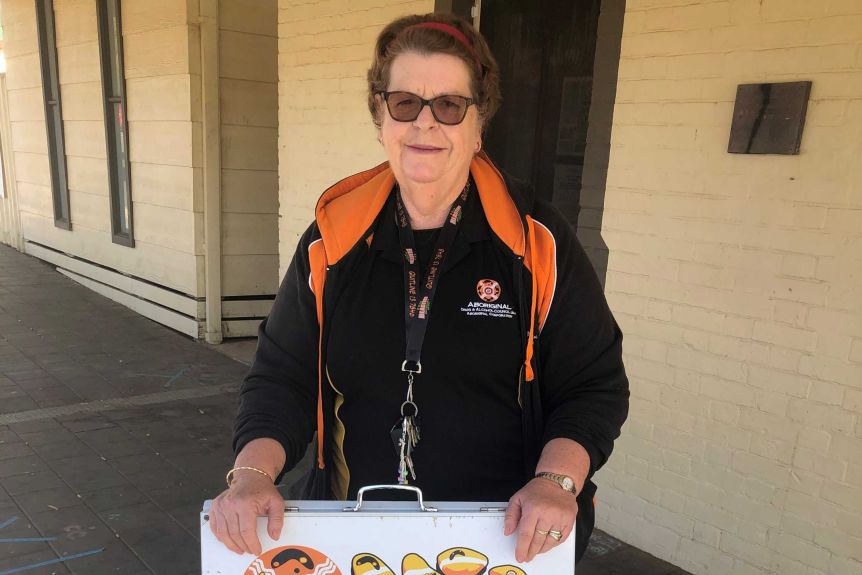Port Augusta Aboriginal rehabilitation centre struggles under coronavirus restrictions


An Aboriginal drug and alcohol rehabilitation centre is raising concerns the coronavirus is making it difficult for clients to get the services they need.
Stepping Stones Day Centre, a drug and alcohol rehab clinic at Port Augusta, in regional South Australia, reported to the local council that it has seen an increase in alcohol consumption since the coronavirus began.
The centre said it could be because of the COVID-19 welfare bonus a lot of its clients are receiving.
"There has been a substantial increase of alcohol use," Stepping Stones coordinator, Alinda Hogg, said.
"We think it is due to the extra money received through the stimulus package to our clients that frequent the day centre.
She said clients also had more money than usual because pokies were closed and that staff are trying to encourage clients to spend the money on other items.
"[We're] trying to encourage them to buy food with their extra funds, and clothing, but I haven't seen any evidence of that," Ms Hogg said.
She said the centre is providing clients with donated clothing because op shops around town are closed.
"They don't have access to the cheaper clothing and we've been getting donations from members of the public," Ms Hogg said.
Sleeping rough
Stepping Stones' report to the Port Augusta City Council also outlined how a lot of its clients are homeless and sleeping rough.
Ms Hogg said a lot of its clients are from the remote APY Lands, on the Northern Territory border, but most went home after the pandemic began.
"Those that are left are mostly homeless and sleeping rough, staying in people's backyards or other known camp sites around the town," she said.
Ms Hogg said watching homeless clients leave the centre was the hardest thing.
Private meetings
Ms Hogg said coronavirus restrictions on indoor gatherings had made it especially difficult to hold private substance abuse meetings.
The centre is holding them outdoors at the moment, but that is creating its own set of issues.
"If we do it outside, there's other people walking through to go to the shower facilities and other things, so we've got issues with confidentiality," she said.
Stepping Stones is an initiative by the Aboriginal Drug and Alcohol Council and its CEO, Scott Wilson, said the coronavirus restrictions have made rehabilitation more difficult.
"If there is no privacy, then you're less likely to bring up your issues," he said.
Mr Wilson said telephone conferencing is difficult for Aboriginal rehab centres.
"Clients that we deal with tend to be less likely have that sort of technology — they lose their phone, the battery goes flat," he said.
"The chances of them having access to wi-fi or internet, makes the new technologies for video conferencing almost non-existent."
Mr Wilson is confident clients who have relapsed will come back to the clinic once the coronavirus restrictions ease further.
"There might have been a lot of people who've relapsed through that period," he said.
 Pathways Drug Rehabilitation Luxury Addiction Treatment & Detox Center
Pathways Drug Rehabilitation Luxury Addiction Treatment & Detox Center


